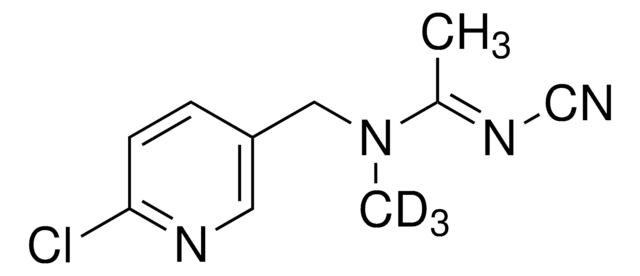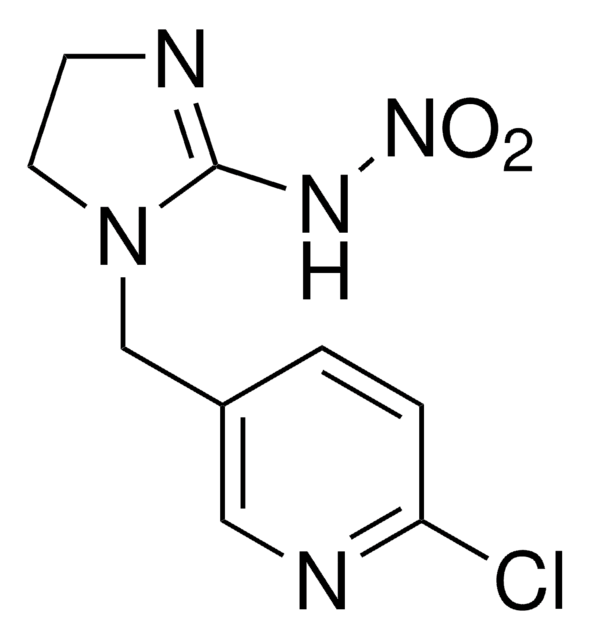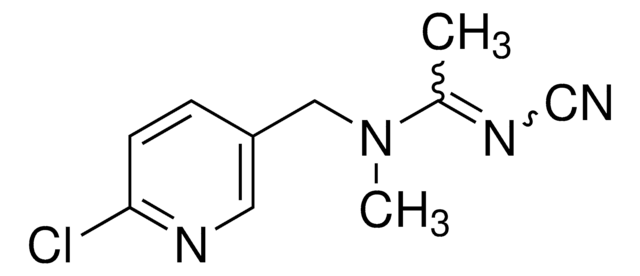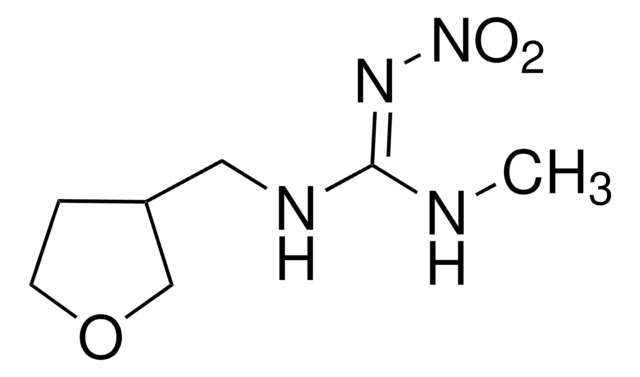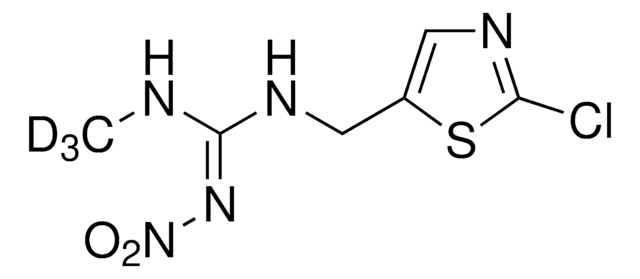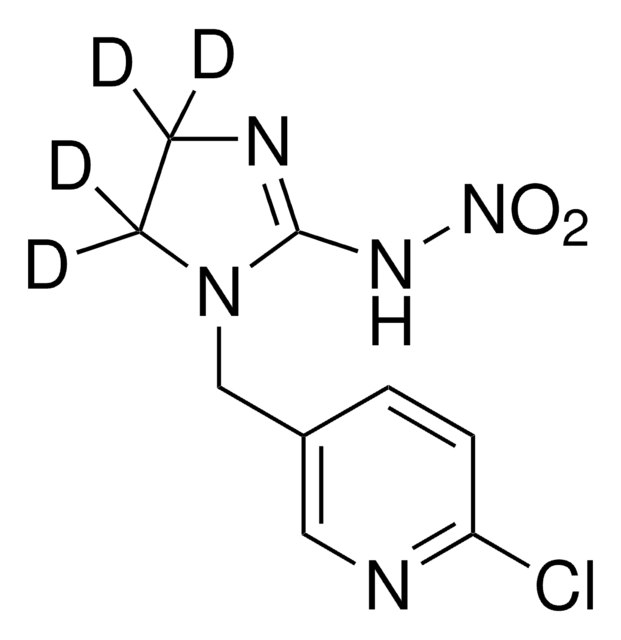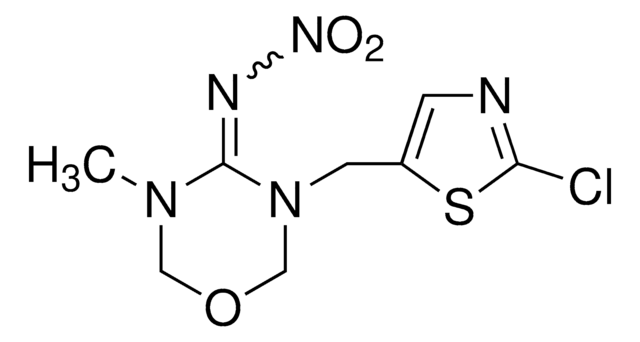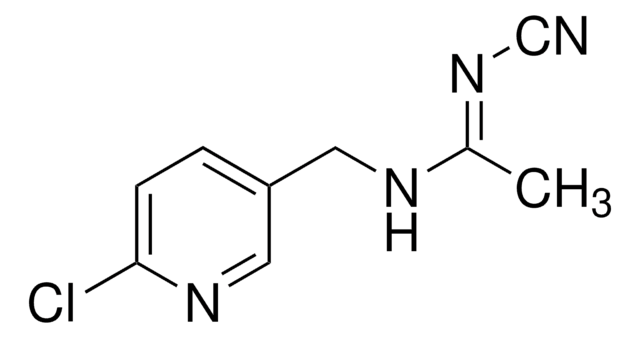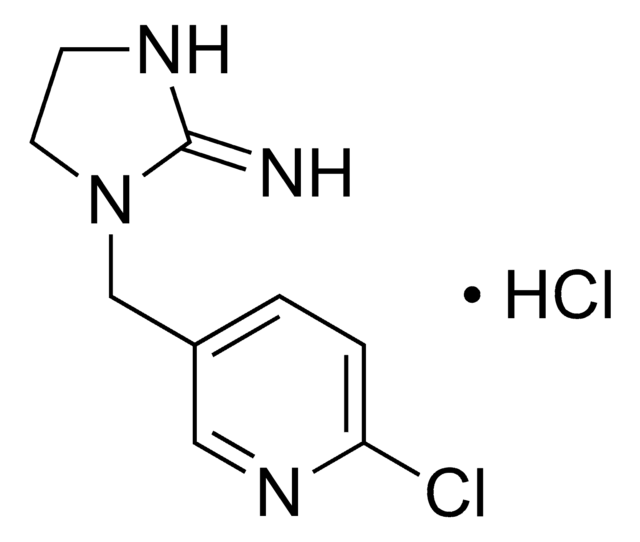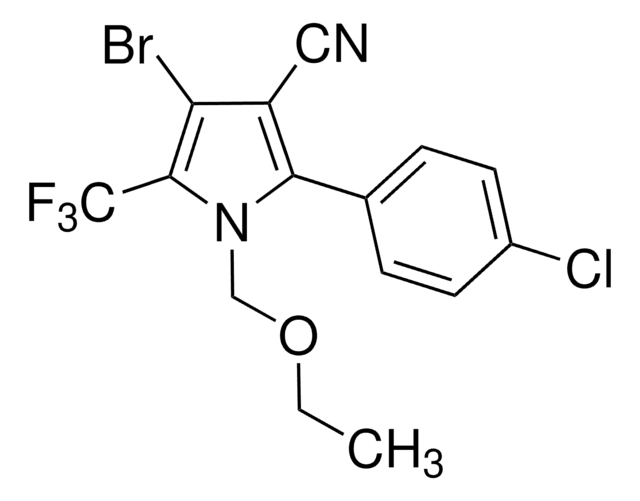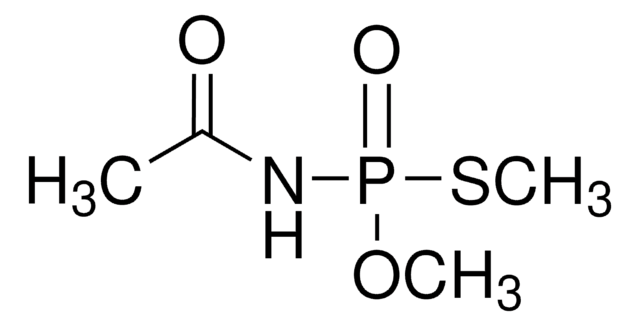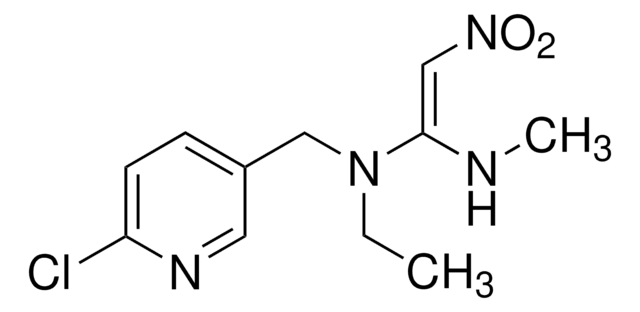32979
Acetamiprid-N-desmethyl
PESTANAL®, analytical standard
Synonym(s):
N-(6-Chloro-3-pyridylmethyl)-N′-cyano-acetamidine
About This Item
Recommended Products
grade
analytical standard
Quality Level
product line
PESTANAL®
shelf life
limited shelf life, expiry date on the label
technique(s)
HPLC: suitable
gas chromatography (GC): suitable
application(s)
agriculture
environmental
format
neat
SMILES string
C\C(NCc1ccc(Cl)nc1)=N/C#N
InChI
1S/C9H9ClN4/c1-7(14-6-11)12-4-8-2-3-9(10)13-5-8/h2-3,5H,4H2,1H3,(H,12,14)
InChI key
AYEAUPRZTZWBBF-UHFFFAOYSA-N
Looking for similar products? Visit Product Comparison Guide
General description
Application
Other Notes
Recommended products
Legal Information
Signal Word
Danger
Hazard Statements
Precautionary Statements
Hazard Classifications
Acute Tox. 3 Oral - Eye Irrit. 2 - Skin Irrit. 2 - STOT SE 3
Target Organs
Respiratory system
Storage Class Code
6.1C - Combustible acute toxic Cat.3 / toxic compounds or compounds which causing chronic effects
WGK
WGK 3
Flash Point(F)
Not applicable
Flash Point(C)
Not applicable
Personal Protective Equipment
Choose from one of the most recent versions:
Already Own This Product?
Find documentation for the products that you have recently purchased in the Document Library.
Customers Also Viewed
Protocols
Learn more about Neonicotinoids - active substances used in plant protection products to control harmful insects.
On Friday, April 27, 2018, the European Union decided to ban the use of three neonicotinoid insecticides from use on field crops, having deemed them dangerous to bees. This application demonstrates the analysis of these banned compounds and others from dandelion blossoms using QuEChERS and LC-MS.
Our team of scientists has experience in all areas of research including Life Science, Material Science, Chemical Synthesis, Chromatography, Analytical and many others.
Contact Technical Service